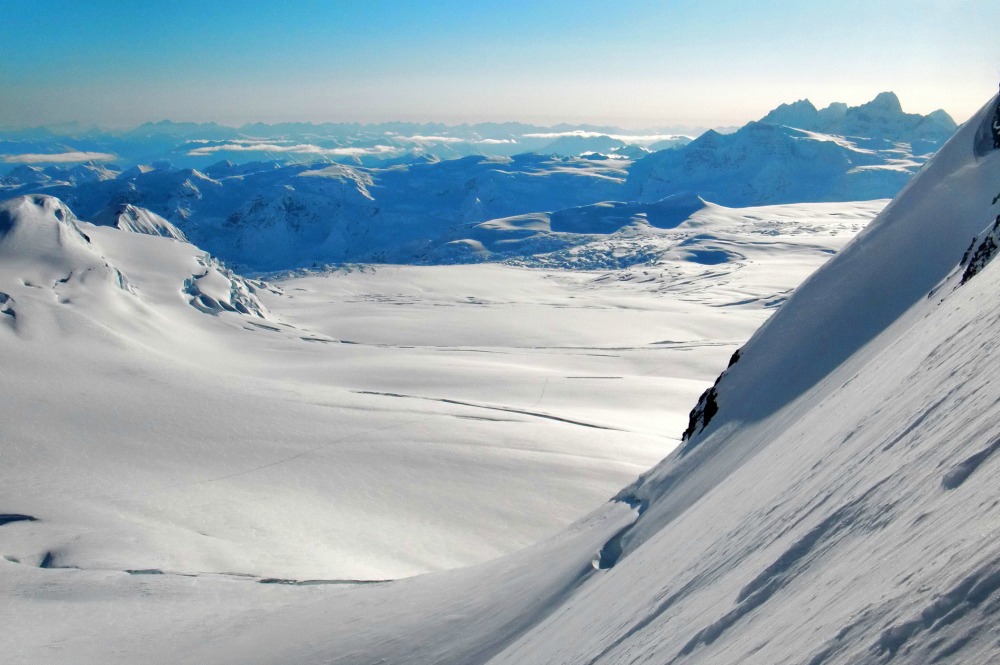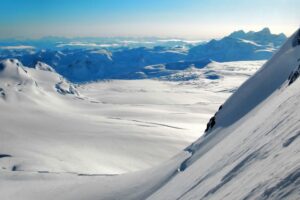
Recreational Snow Machining in our National Parks
Alaska’s largest national park, Wrangell-St. Elias, is considering allowing recreational snow machining in the Park & Preserve, including some of the Park’s designated Wilderness. The problem is it’s simply not allowed under the Alaska National Interest Lands Conservation Act (ANILCA).
The Park is preparing a Backcountry and Wilderness Stewardship Plan as mandated by their 1986 General Management Plan. The plan will be the roadmap for the Park and Preserve’s programs and priorities for resources stewardship and science, visitor use, facilities and operations for specific areas of the backcountry and wilderness for the next 20 years. A public scoping process occurred in 2015 and in spring 2016, a Proposed Action was submitted for public review.

No recreational snow machining tracks mar this stunning view of Wrangell-St. Elias National Park and Preserve. Photo courtesy of Katie Strong.
Trustees for Alaska submitted comments on the Proposed Action on behalf of Alaska Quiet Rights Coalition, Alaska Wilderness League, Copper Country Alliance, Sierra Club Alaska Chapter, The Wilderness Society, Wilderness Watch, and Winter Wildlands Alliance. The comments submitted to park officials focused on recreational snow machining.
Congress, when it wrote the ANILCA legislation, purposely allowed traditional uses in the conservation units created under ANILCA to maintain the unique Alaskan way of life that depends on certain activities for survival. This allowance includes what are considered consumptive purposes like hunting, fishing, trapping, berry-picking, and motorized transportation to and from remote sites for these purposes and the transportation of freight to remote villages. Wrangell-St. Elias was created in 1980 as part of ANILCA.
The Park’s proposed action violates ANILCA and it ignores an important precedent set by Denali National Park in its ban on snow machine use within its Wilderness boundaries. In the Denali decision, the Park Service’s opinion, based on a comprehensive review of ANILCA’s legislative history, found that “traditional activities” did not include recreational snow machining.
Moreover, ANILCA’s legislative history provides no support for an interpretation that would include recreational snow machining. The legislative history is clear that “traditional activities” and “traditional uses” are linked to consumptive uses, local rural lifestyles and cultural traditions, either in the subsistence context or as a general utilitarian way of life.
Snow machines have been widely acknowledged to have significant impacts on wildlife, air and water quality, vegetation and soils, wetlands, and Wilderness values and users. Allowing recreational snow machining in the Park, including the Wilderness areas of Wrangell-St. Elias, will not only be in violation of the law, but it also goes against the Park Service’s mandate to protect the resources of the park.
Clients: Alaska Quiet Rights Coalition, Alaska Wilderness League, Copper Country Alliance, Sierra Club Alaska Chapter, The Wilderness Society, Wilderness Watch, and Winter Wildlands Alliance
Attorneys: Brian Litmans


